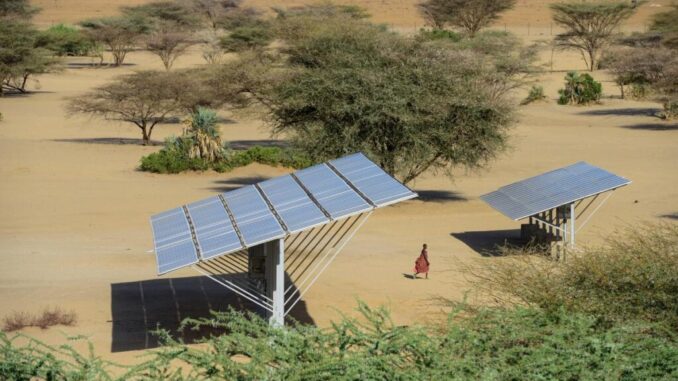
- The ACMI has drawn hundreds of millions of dollars in pledges from governments, businesses, and financial institutions.
- The UAE has committed to buying $450 million of carbon credits from the ACMI.
- African governments see carbon credits as a way to mobilize climate finance.
- Many African campaigners are skeptical of carbon credits, saying they could be used to legitimize continued pollution.
- Carbon markets are a controversial tool, but they could be a valuable way to raise money for climate action.
The Africa Carbon Markets Initiative (ACMI) has drawn hundreds of millions of dollars in pledges from governments, businesses, and financial institutions, as African leaders seek to mobilize climate finance for the continent.
“We must see in green growth not just a climate imperative but also a fountain of multi-billion dollar economic opportunities that Africa and the world is primed to capitalise,”
said Kenyan President William Ruto.
The ACMI aims to boost Africa’s carbon credit production 19-fold by 2030. Carbon credits are tradable certificates that represent the reduction of one metric ton of carbon dioxide or equivalent greenhouse gas emissions. They can be used by companies and governments to offset their emissions.
“There hasn’t been any success for an African country in attracting climate finance,”
said Bogolo Kenewendo, a United Nations climate adviser and former trade minister in Botswana.
The UAE has committed to buying $450 million of carbon credits from the ACMI. Other pledges include $200 million from Climate Asset Management, a joint venture of HSBC Asset Management and Pollination, a specialist climate change investment and advisory firm; and 49 million pounds ($62 million) from the UK.
“The private sector really remains an untapped opportunity that now must be seized,”
said Patricia Scotland, secretary-general of the Commonwealth of 56 countries.
African governments see carbon credits and other market-based financing instruments as critical to mobilize funding that has been slow to arrive from rich-world donors. Africa has received only about 12% of the money it needs to cope with climate impacts, according to a report last year by the non-profit Climate Policy Initiative.
However, many African campaigners have opposed the summit’s approach to climate finance, saying carbon credits are a pretext for continued pollution by wealthier countries and corporations. They argue that these countries should instead pay their “climate debt” through direct compensation and debt relief.
“A lack of a commonly-agreed standard is undermining their integrity and diminishing their value,”
said Sultan Al Jaber, president of COP28.
The pledges made at the ACMI summit are a positive step towards mobilizing climate finance for Africa. However, it is important to note that these pledges are still far from meeting the continent’s needs. African campaigners are right to be skeptical of carbon markets, as they have the potential to be used as a way for wealthier countries and corporations to continue polluting without taking meaningful action to reduce their emissions. It is essential that any carbon market system be designed in a way that ensures that the benefits of climate action are shared fairly and equitably.
The ACMI summit is a significant event in the fight against climate change. It is a chance for African leaders to showcase the continent as a destination for climate investment rather than a victim of floods, drought, and famine. However, it is also a chance for African campaigners to push for a fair and equitable system for distributing the benefits of climate action.
